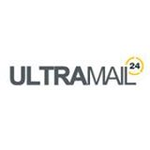Description

MailboxValidator

Recapture
Comprehensive Overview: MailboxValidator vs Recapture
As of my last knowledge update in October 2023, MailboxValidator and ReCAPTCHA are two distinct tools serving different primary functions, though both are instrumental in improving online integrity and usability. Let's delve into an overview of each:
a) Primary Functions and Target Markets
MailboxValidator
Primary Functions:
- Email Verification: MailboxValidator is primarily used for verifying the validity and deliverability of email addresses. It checks if an email address is properly formatted, exists, not a temporary address, and can receive emails.
- Reducing Bounce Rates: By verifying email lists, users can reduce the chance of emails bouncing back, which is critical for maintaining a healthy sender reputation.
- Preventing Fraud: It helps in identifying potential fraudulent or disposable email addresses which might be used for illicit purposes.
Target Markets:
- Email Marketers: Businesses that rely heavily on email marketing campaigns to ensure high deliverability rates.
- E-commerce Platforms: To validate customer emails for communications, transaction confirmations, and promotions.
- CRM Systems: For managing large customer databases with verified and active email addresses.
ReCAPTCHA
Primary Functions:
- Bot Detection and Prevention: ReCAPTCHA is designed to protect websites from bots and abusive activities. It distinguishes between human and automated access.
- Security Enhancement: Provides an additional layer of security by preventing automated scripts from engaging in abusive behavior like spamming comment sections, fraudulent clicks, or form submissions.
Target Markets:
- Web Developers: Websites needing to defend against spam and malicious attacks.
- Online Services Platforms: Sites that require login or submission forms (especially in forums and social networks) to ensure that users are humans.
- E-commerce Websites: To protect from bots trying to perform unwanted actions such as scraping, credential stuffing, or DDoS attacks.
b) Market Share and User Base
-
MailboxValidator: While specific market share data might not be publicly detailed, MailboxValidator holds a niche market within email marketers and businesses that require effective email list management. It competes with other email verification tools like NeverBounce, ZeroBounce, and BriteVerify.
-
ReCAPTCHA: Developed by Google, ReCAPTCHA boasts a large market share given its integration in millions of websites worldwide. It benefits from Google’s ecosystem and accessibility, making it a prevalent choice for CAPTCHA solutions. ReCAPTCHA competes with alternative CAPTCHA solutions like hCaptcha and other custom solutions but maintains dominance due to its widespread recognition and robust reliability.
c) Key Differentiating Factors
-
Functionality: MailboxValidator focuses on email verification and ensuring email marketing efficiency, while ReCAPTCHA is a security measure to prevent bot access and abuse on websites.
-
Implementation: MailboxValidator is typically integrated into email processing and CRM systems with its API for email verification, whereas ReCAPTCHA is embedded directly into web pages as a security layer, usually through JavaScript widgets.
-
Market Niche: MailboxValidator appeals more to businesses focused on email communication and marketing, whereas ReCAPTCHA serves a broader audience interested in protecting web environments from malicious traffic.
-
Developer and Support: ReCAPTCHA benefits from Google's extensive development and support resources and integration across Google’s other services. MailboxValidator offers dedicated tools for email-specific problems and solutions.
Each of these tools provides essential services to respective industries with little overlap in functionalities. Businesses may leverage both products simultaneously to ensure both email verification and website security.
Contact Info

Year founded :
2013
Not Available
Not Available
Malaysia
http://www.linkedin.com/company/mailboxvalidator

Year founded :
Not Available
Not Available
Not Available
United States
http://www.linkedin.com/company/recapturegroup
Feature Similarity Breakdown: MailboxValidator, Recapture
When comparing MailboxValidator and ReCAPTCHA, it's important to note that these tools serve different primary purposes and, therefore, have some differences in their feature sets. However, they can be included in discussions about online verification and security. Here’s a breakdown based on your criteria:
a) Core Features in Common
-
Verification:
- Both MailboxValidator and reCAPTCHA focus on validation; MailboxValidator does this for emails, ensuring that email addresses are valid, while reCAPTCHA verifies human users in web interactions.
-
Data Security:
- Both services contribute to enhancing the security of online platforms. MailboxValidator filters out invalid or risky email addresses, reducing spam and potential abuse, while reCAPTCHA prevents automated bots from interacting with websites.
-
Integration Capabilities:
- MailboxValidator and reCAPTCHA are designed to be integrated with various platforms such as websites, apps, or other online systems. They offer APIs for easy implementation.
b) User Interface Comparison
-
MailboxValidator:
- Design: Often features a straightforward, professional dashboard where users can manually enter email addresses or upload lists for validation.
- User Experience: Geared towards business users needing to clean and validate large volumes of email addresses with clear instructions and practical features such as reports and data export options.
-
reCAPTCHA:
- Design: Typically embedded directly into the user’s website or app interface as a small widget users interact with.
- User Experience: Designed to be unobtrusive and easy to use, focusing on quick verification tasks. The major interaction component is designed to be simple for humans to solve (e.g., identifying objects in images) while being difficult for bots.
c) Unique Features
-
MailboxValidator:
- Email Domain Validation: It provides comprehensive checks including syntax validation, MX records, and domain DNS records.
- Disposable Email Detection: Identifies temporary email addresses used to bypass the system.
- SMTP Server Validation: Connects to the email server to ensure the email address can receive emails.
- Blacklist Checking: Identifies emails that appear on known spam databases.
-
ReCAPTCHA:
- Bot Detection: Uses advanced risk analysis and adaptive challenges to distinguish human users from bots.
- Invisible reCAPTCHA: Performs background checks without user interaction in many cases, providing a seamless user experience.
- Multiple Challenge Types: Offers various types of challenges (image, text) to ensure the robustness of verification against evolving bot sophistication.
- Adaptive Learning: Continuously improves and adapts based on the data and patterns observed over time.
In conclusion, while both tools are involved in user verification processes, MailboxValidator is tailored towards email validation with features specific to ensuring the quality and safety of email lists. In contrast, reCAPTCHA focuses on preventing bot interactions with websites, using techniques designed specifically to be human-friendly while robust against automated systems.
Features

Not Available

Not Available
Best Fit Use Cases: MailboxValidator, Recapture
MailboxValidator and Recapture serve different purposes within the realm of email and eCommerce management, and they are each suited to distinct use cases and business needs.
MailboxValidator
a) Best Fit Use Cases:
- Email Marketing Agencies: Businesses engaged in email marketing will benefit from MailboxValidator as it ensures that email lists are clean, reducing bounce rates and improving deliverability. This is crucial for maintaining sender reputation and ensuring emails reach the intended audience.
- E-commerce Platforms: Online stores that rely on email communications for order confirmations, newsletters, and promotions can use MailboxValidator to verify customer email addresses at sign-up, enhancing communication reliability.
- SaaS Companies: Companies offering software-as-a-service solutions that require users to register can use MailboxValidator to ensure valid email addresses, thereby improving user experience and reducing fraudulent sign-ups.
- Large Enterprises with Extensive CRM Systems: Organizations with large customer databases can utilize MailboxValidator to periodically clean their data, ensuring accurate customer contact information for seamless operations.
d) Catering to Industry Verticals or Company Sizes:
MailboxValidator is versatile and supports a broad range of industries, including retail, technology, and marketing. It's useful for companies of all sizes—from startups to multinational corporations—as email validation is a common need across the business spectrum.
Recapture
b) Preferred Scenarios:
- E-commerce Businesses Focused on Cart Recovery: Recapture is tailored for online retailers who need to address cart abandonment issues. It provides tools for sending automated follow-up emails to recover lost sales, which is essential for maximizing revenue.
- Online Retailers Seeking Customer Engagement: Businesses looking to enhance customer engagement through personalized emails and promotions would find Recapture's features beneficial. It facilitates targeted marketing efforts based on user behavior.
- SMEs (Small and Medium-sized Enterprises): Smaller online stores, often without dedicated marketing departments, can leverage Recapture’s automation and user-friendly interfaces to efficiently manage cart recovery and customer retention strategies.
d) Catering to Industry Verticals or Company Sizes:
Recapture primarily targets the e-commerce sector, supporting a range of business sizes but is particularly advantageous for SMEs who may lack resources to develop complex marketing initiatives. It provides straightforward, actionable insights and automation capabilities suitable for businesses with limited marketing budgets and staff.
In summary, MailboxValidator is ideal for broad applications in email list management across various industries, while Recapture is specifically designed to support e-commerce businesses looking to recover lost sales and engage with customers effectively. Both tools cater to different industry needs, with MailboxValidator focusing on email accuracy and Recapture emphasizing revenue recovery and customer retention.
Pricing

Pricing Not Available

Pricing Not Available
Metrics History
Metrics History
Comparing teamSize across companies
Conclusion & Final Verdict: MailboxValidator vs Recapture
Conclusion and Final Verdict for MailboxValidator vs. Recapture
In comparing MailboxValidator and Recapture, both tools offer distinct functionalities that cater to different business needs. MailboxValidator is primarily focused on verifying the validity and deliverability of email addresses, ensuring that businesses maintain clean mailing lists. Recapture, on the other hand, is more geared towards solving abandoned cart issues for e-commerce businesses, boosting sales recovery through email marketing.
a) Best Overall Value: Considering all factors, the best overall value depends greatly on the specific needs of a business.
-
If a company’s priority is to maintain a high-quality email list and ensure their email marketing efforts are directed at valid email addresses, MailboxValidator is the better choice. It reduces bounce rates, improves sender reputation, and increases email deliverability.
-
For e-commerce businesses focused on recovering lost sales and improving conversion rates through cart abandonment solutions, Recapture offers the best value. It actively engages customers to complete their purchases, directly impacting revenue.
b) Pros and Cons:
MailboxValidator:
-
Pros:
- Enhances email deliverability by verifying email addresses.
- Reduces bounce rates, protecting sender reputation.
- Ensures compliance with data protection regulations.
- Integrates easily with various platforms and CRMs.
-
Cons:
- Does not offer solutions beyond email verification.
- Limited use for businesses that do not rely heavily on email marketing.
Recapture:
-
Pros:
- Specifically targets abandoned cart issues to recover lost sales.
- Provides tools for automated follow-up emails and personalized offers.
- Easily integrates with major e-commerce platforms.
- Offers analytics and insights into customer behavior and campaign performance.
-
Cons:
- Effectiveness largely depends on the volume of traffic and abandoned carts.
- Not suitable for non-e-commerce businesses or those not facing abandonment issues.
c) Recommendations:
-
For Email Verification Needs: Businesses whose primary concern is maintaining a clean email list should opt for MailboxValidator. It provides a targeted solution to enhance communication strategies by ensuring messages reach active and valid email addresses.
-
For E-commerce and Sales Recovery: E-commerce businesses with significant issues related to cart abandonment will benefit more from Recapture. This tool is specifically designed to tackle and convert abandoned carts into sales, offering a direct impact on revenue growth.
-
Combined Approach: Companies involved in both e-commerce and email marketing may benefit from using both tools simultaneously. While MailboxValidator ensures that email campaigns reach the right audience, Recapture helps in recovering potential lost sales, providing a comprehensive strategy for improving overall business performance.
Ultimately, the decision between MailboxValidator and Recapture should align with the company’s overarching goals—whether it’s optimizing marketing emails or maximizing online sales through customer engagement.
Add to compare
Add similar companies



